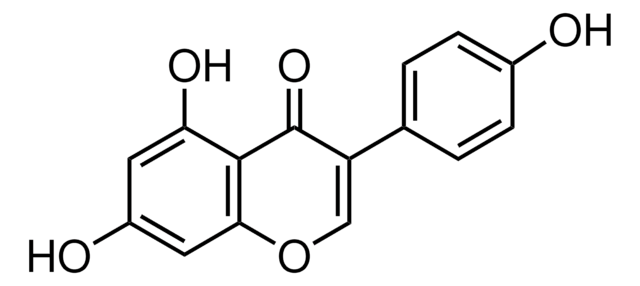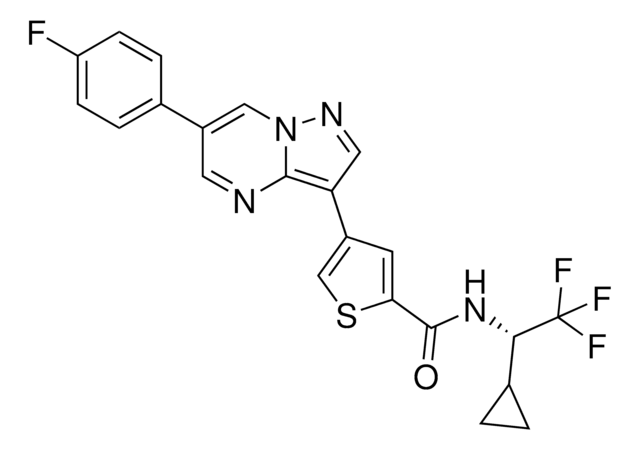All Photos(1)
About This Item
Linear Formula:
Tyr-Gly-Arg-Lys-Lys-Arg-Arg-Gln-Arg-Arg-Arg-Gly-Gly-Thr-Asn-Val-Phe-Asn-Ala-Thr-Phe-Glu-Ile-Trp-His-Asp-Gly-Glu-Phe-Gly-Thr
CAS Number:
Molecular Weight:
3741.10
UNSPSC Code:
12352200
NACRES:
NA.32
Recommended Products
General description
The TAT-BECLIN-1 (autophagy activator) peptide is derived from a region of the autophagy protein, beclin 1, attached to the HIV-1 Tat protein transduction domain. The peptide includes 11 amino acids at the N terminus derived from the Tat protein transduction domain, 18 amino acids (267–284 aa) from beclin 1 at the C terminus and a GG linker.
Biochem/physiol Actions
The TAT-BECLIN-1 (autophagy activator) peptide reduces the accumulation of polyglutamine aggregates and pathogen replication in vitro. This peptide is also found to reduce the mortality of mice infected by different viruses. The TAT-BECLIN-1 peptide is predicted to stimulate cell death via autophagy.
Storage Class Code
11 - Combustible Solids
WGK
WGK 3
Flash Point(F)
Not applicable
Flash Point(C)
Not applicable
Certificates of Analysis (COA)
Search for Certificates of Analysis (COA) by entering the products Lot/Batch Number. Lot and Batch Numbers can be found on a product’s label following the words ‘Lot’ or ‘Batch’.
Already Own This Product?
Find documentation for the products that you have recently purchased in the Document Library.
Identification of a candidate therapeutic autophagy-inducing peptide.
Shoji-Kawata S, et al.
Nature, 494(7436), 201-201 (2013)
Autosis is a Na+, K+-ATPase?regulated form of cell death triggered by autophagy-inducing peptides, starvation, and hypoxia?ischemia.
Liu Y, et al.
Proceedings of the National Academy of Sciences of the USA, 110(51), 20364-20371 (2013)
Our team of scientists has experience in all areas of research including Life Science, Material Science, Chemical Synthesis, Chromatography, Analytical and many others.
Contact Technical Service



